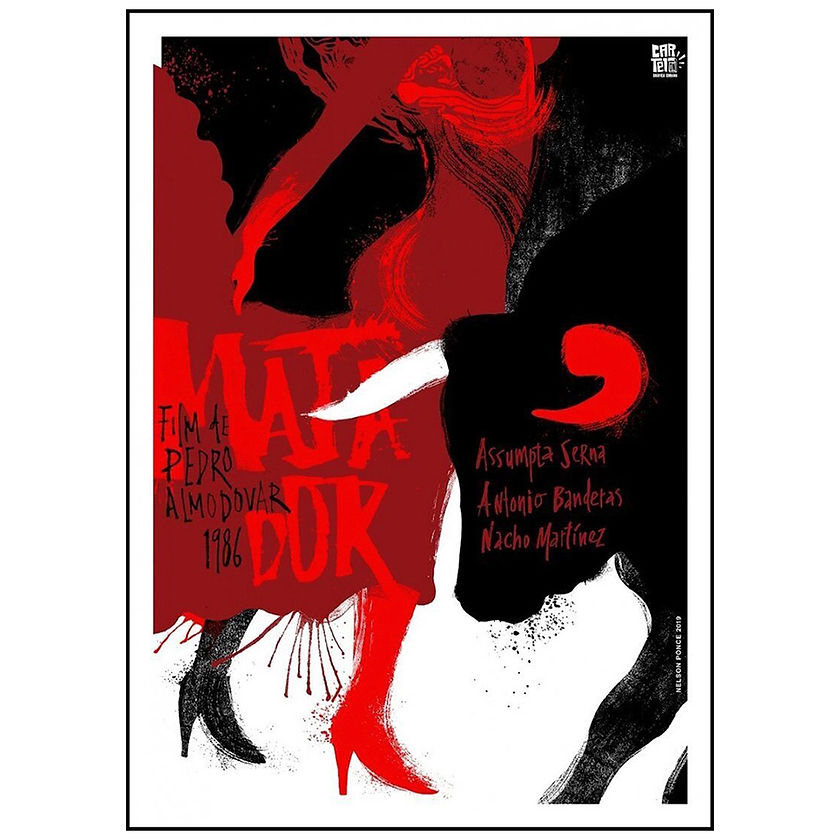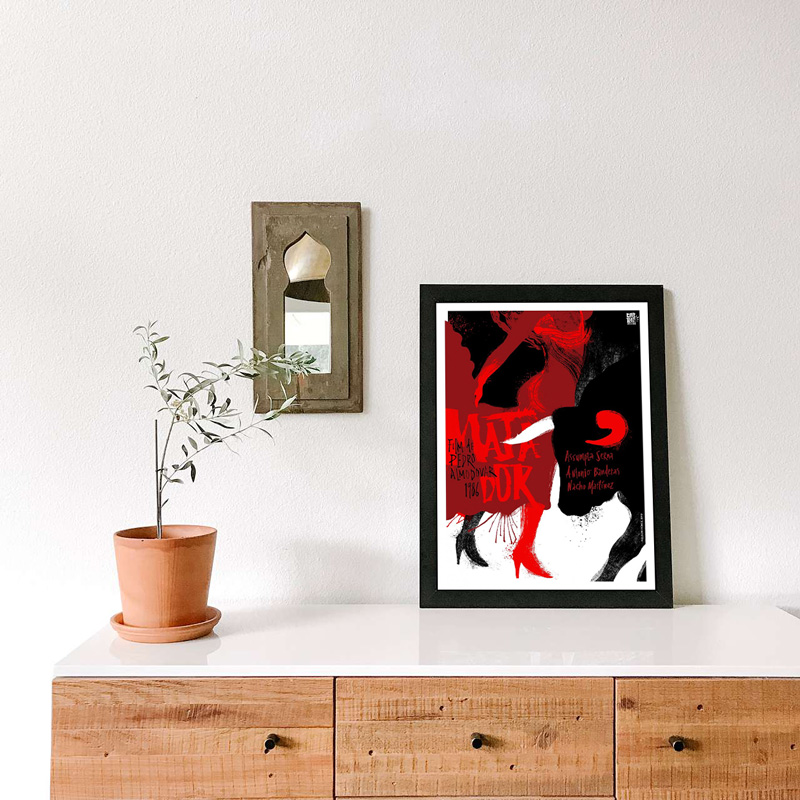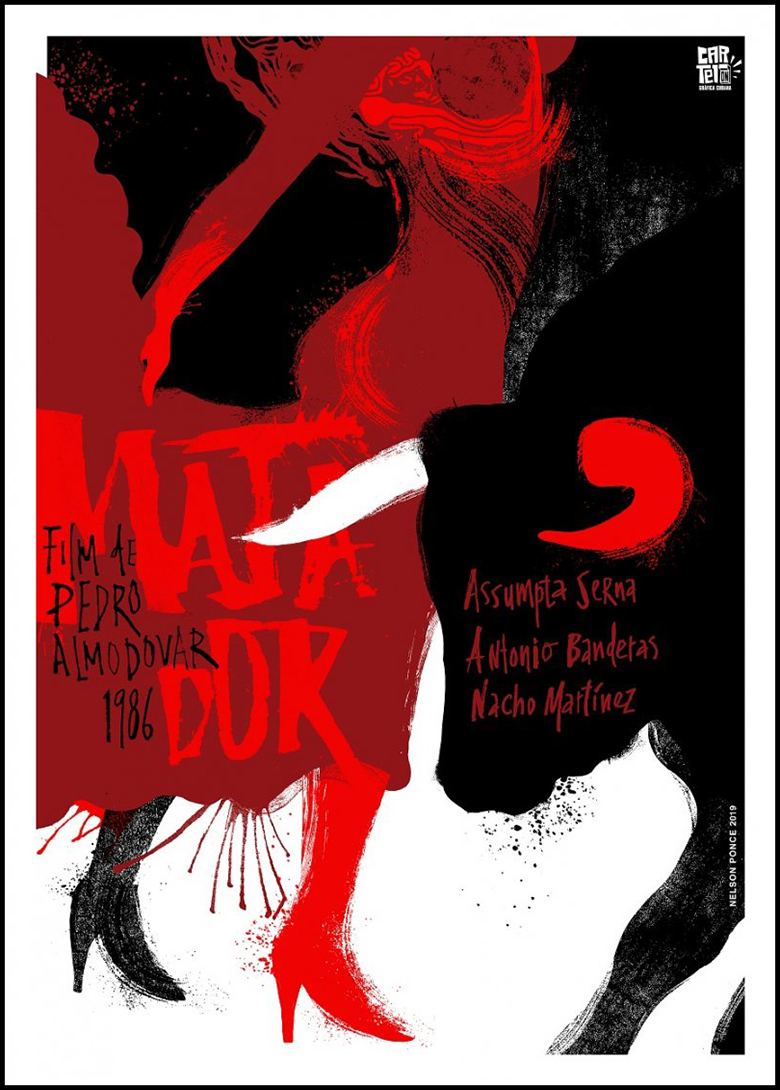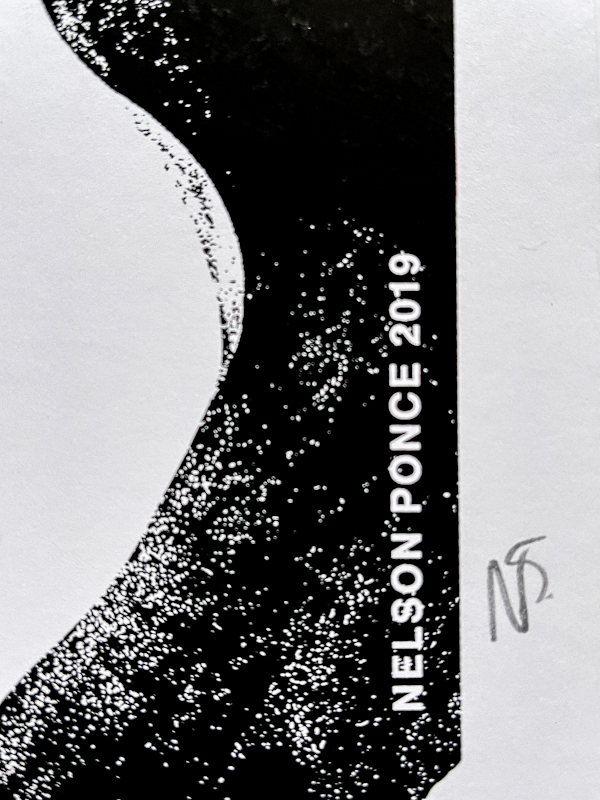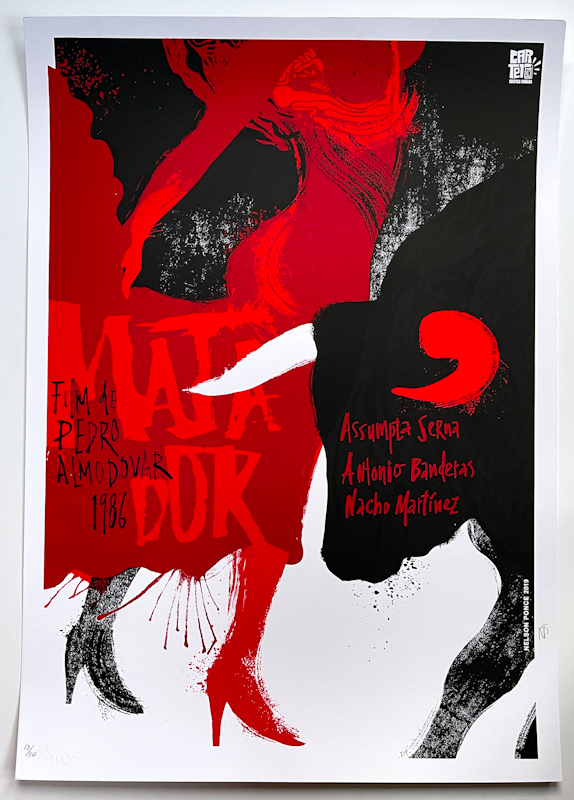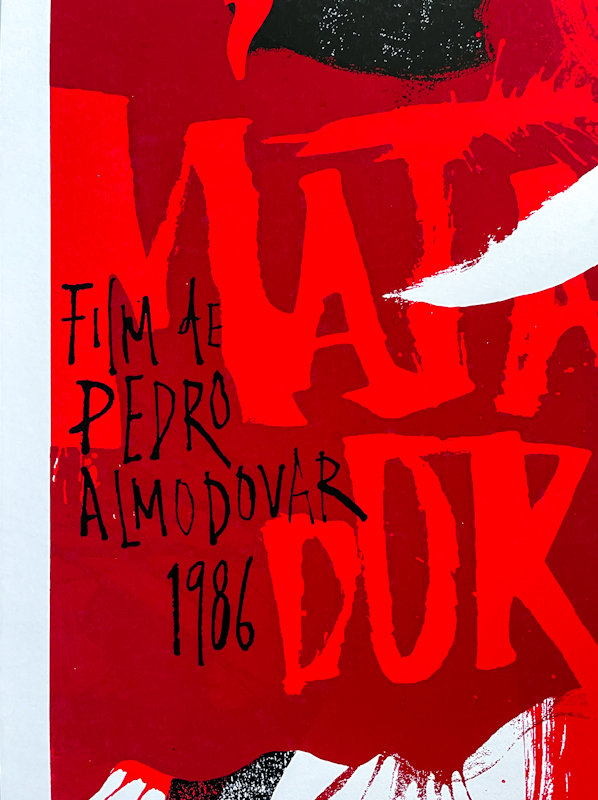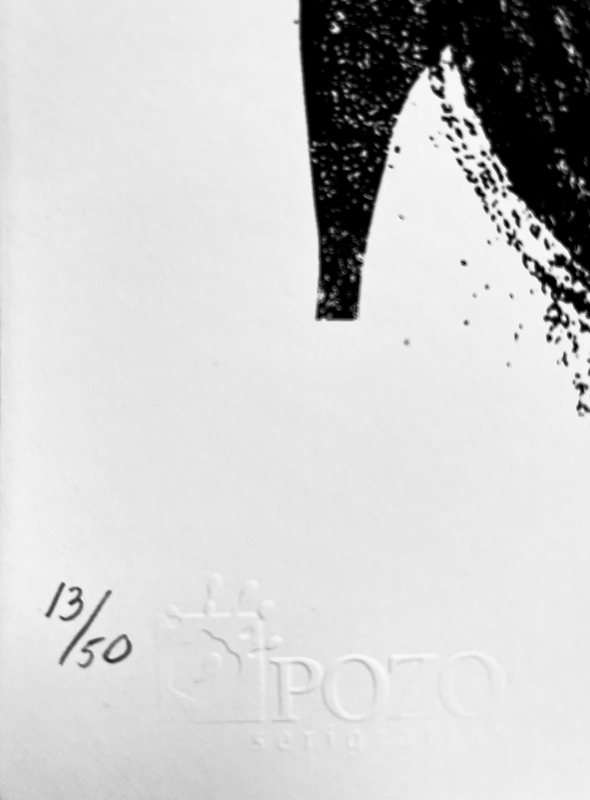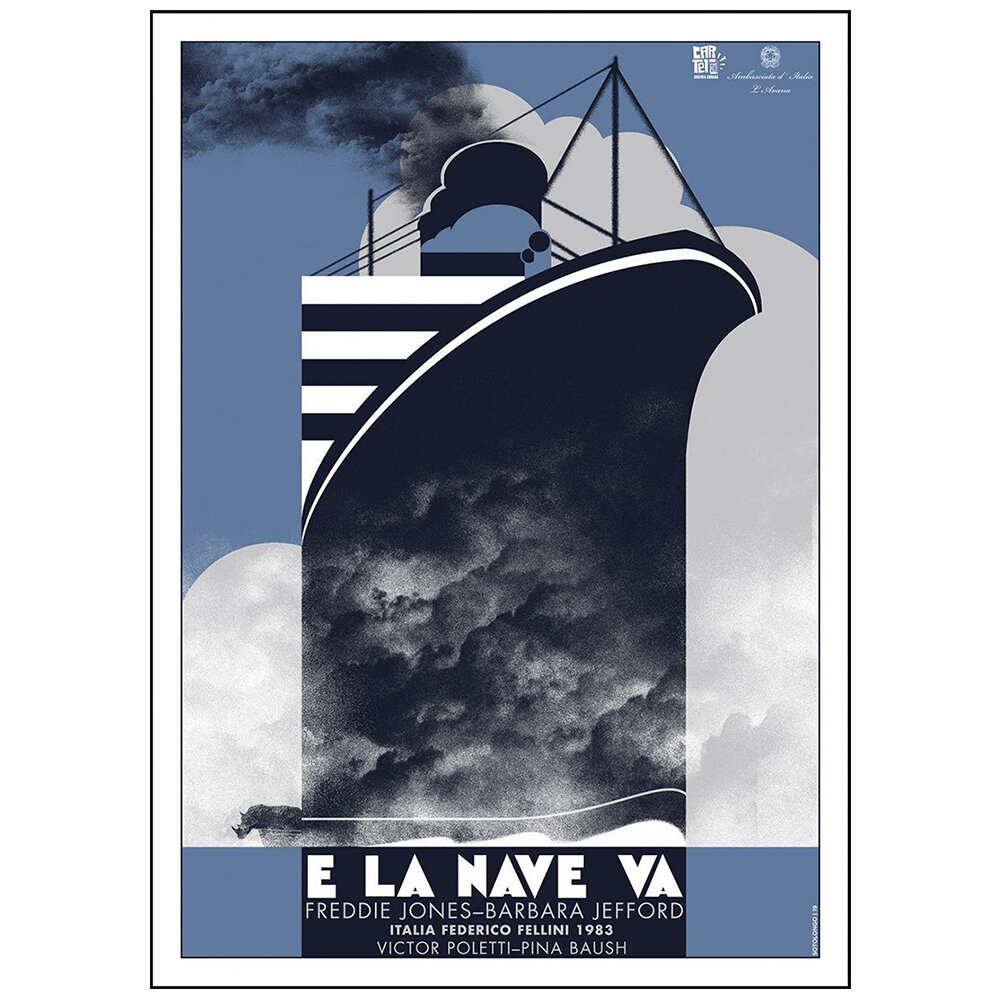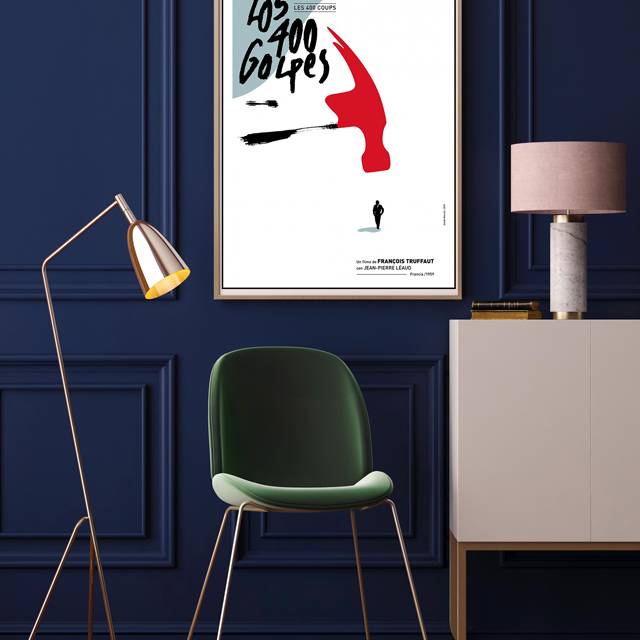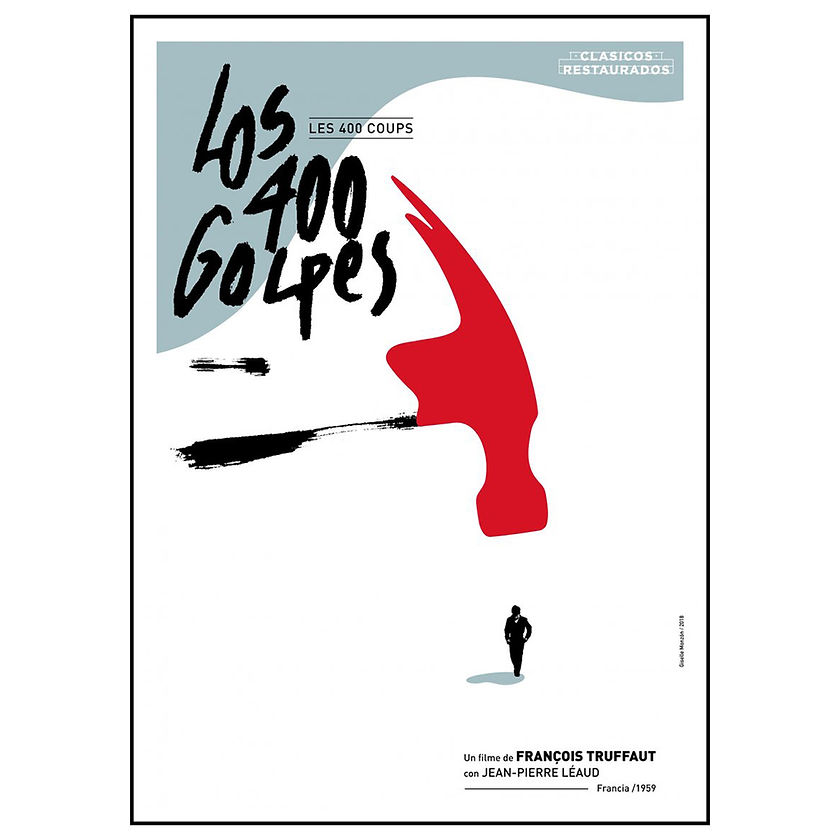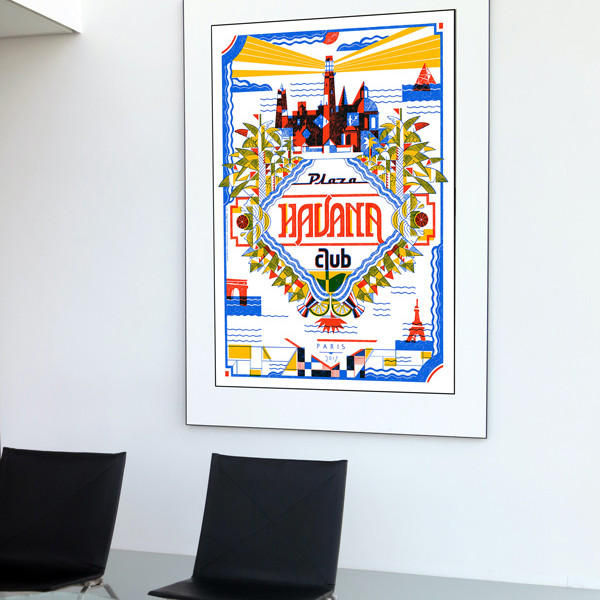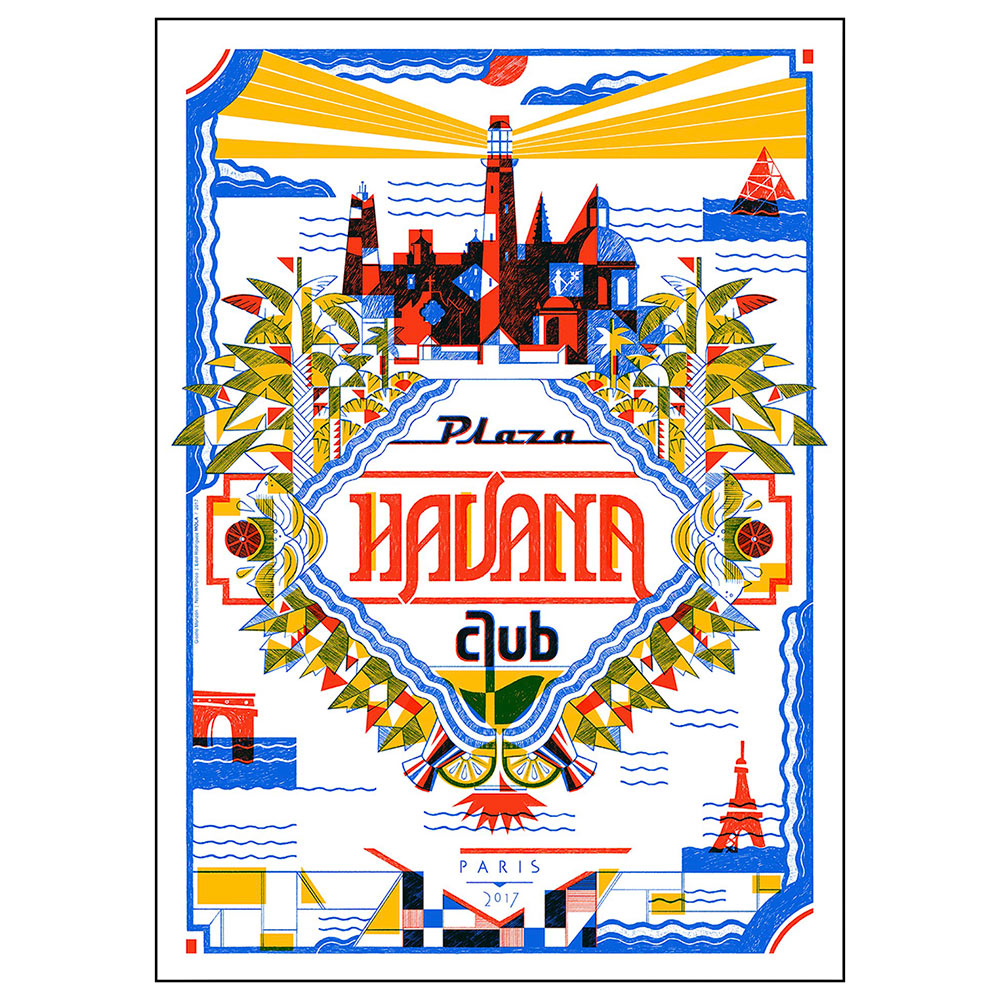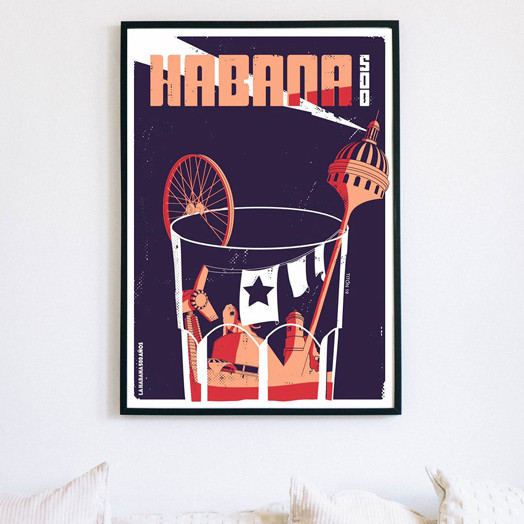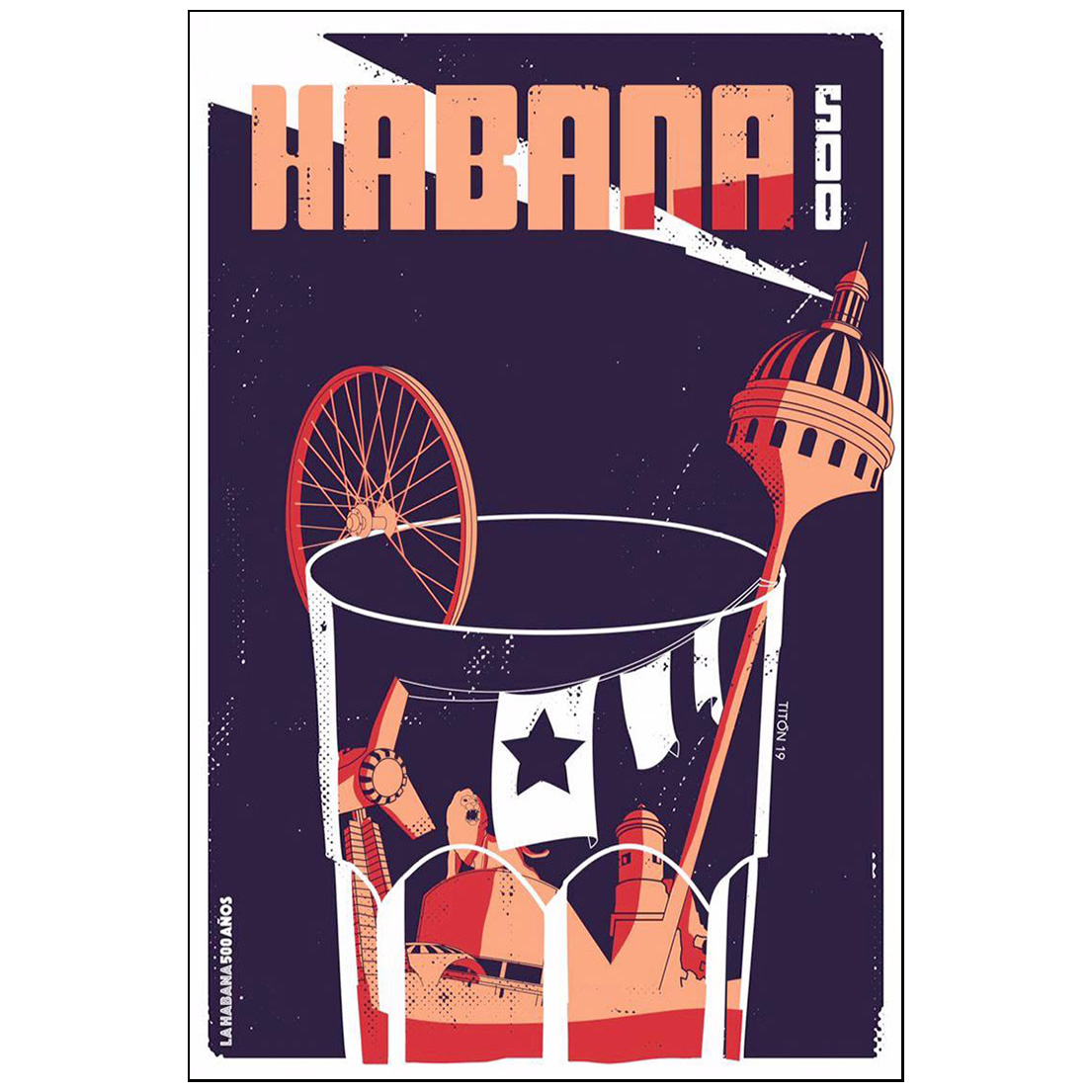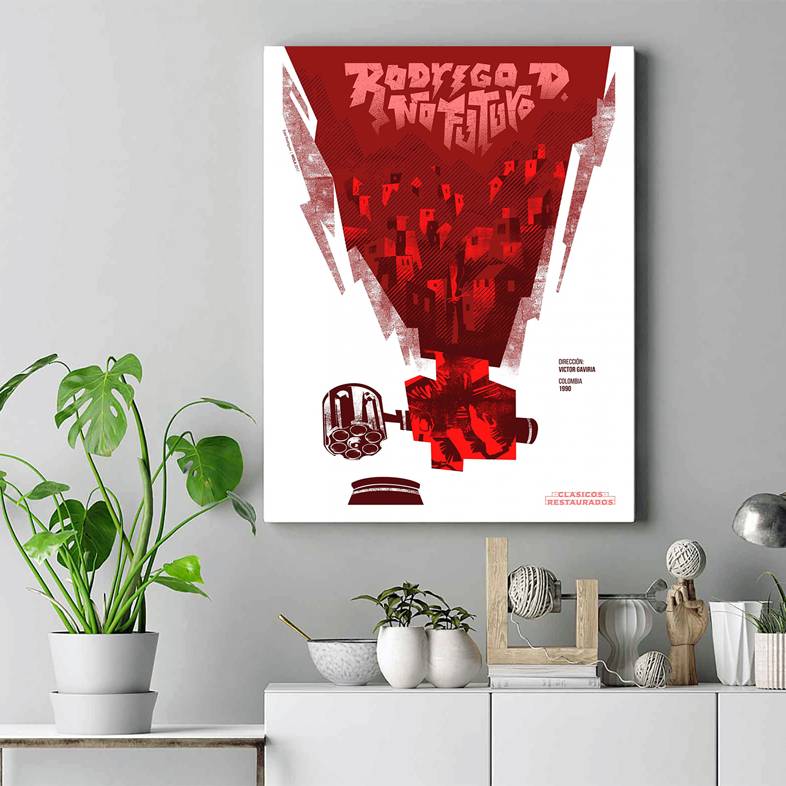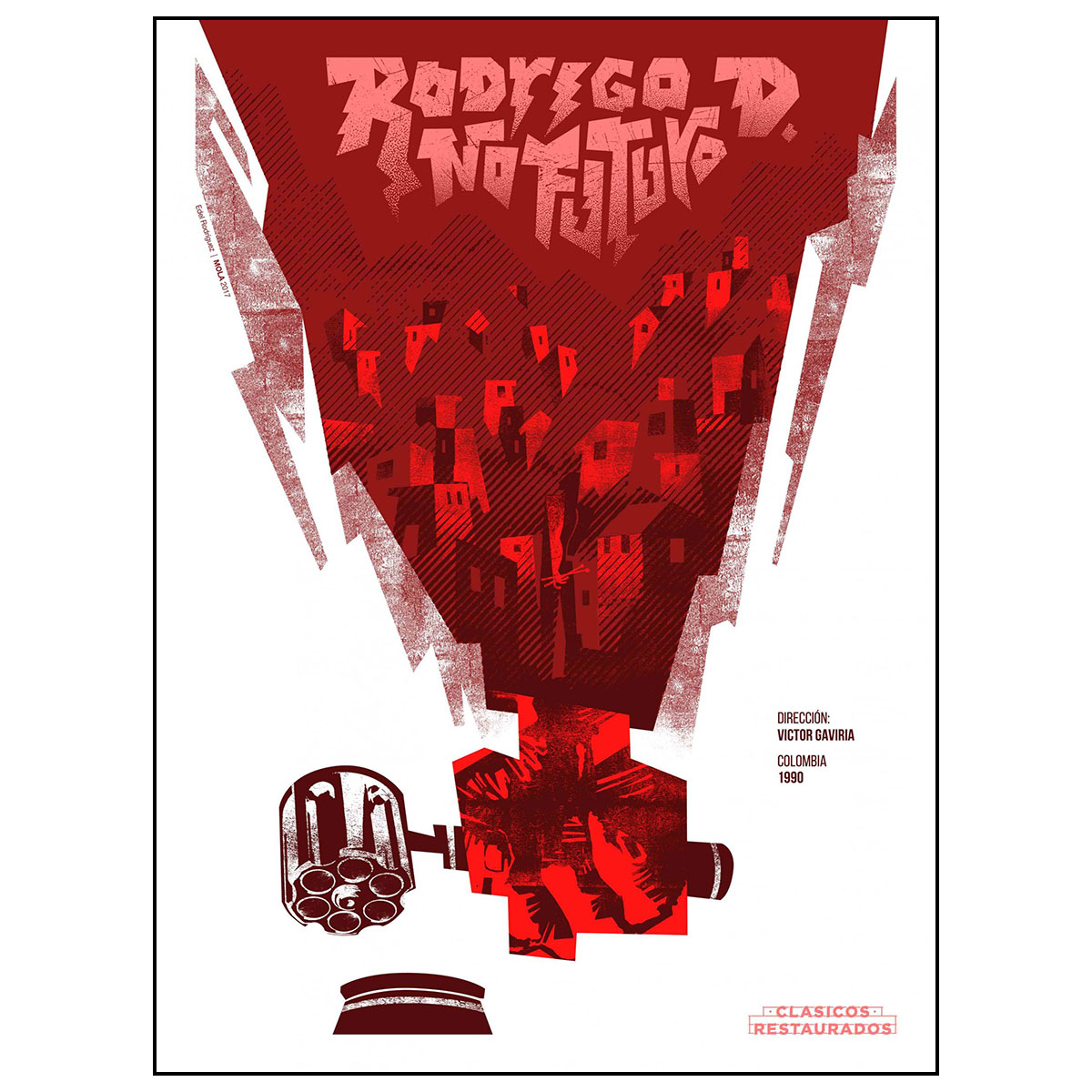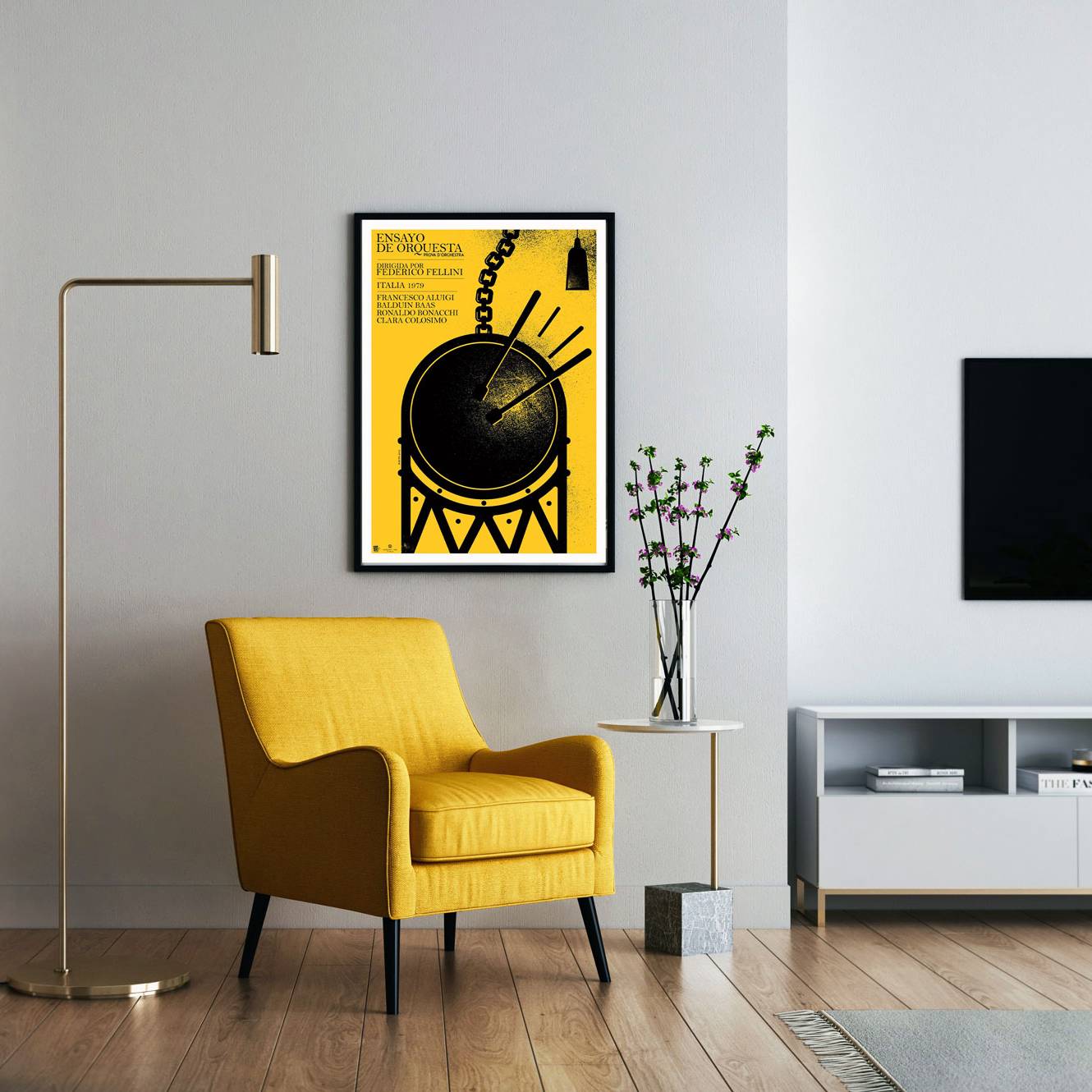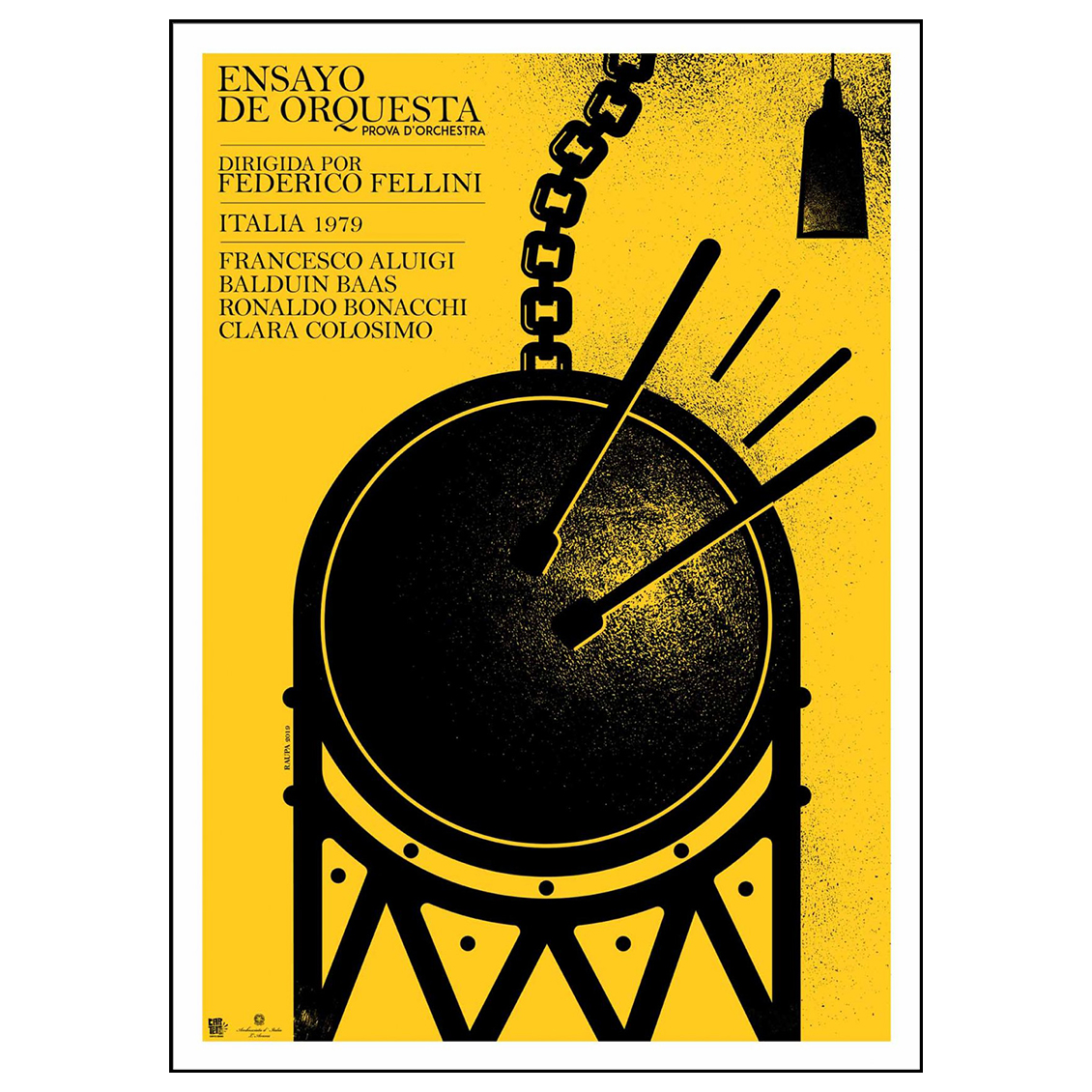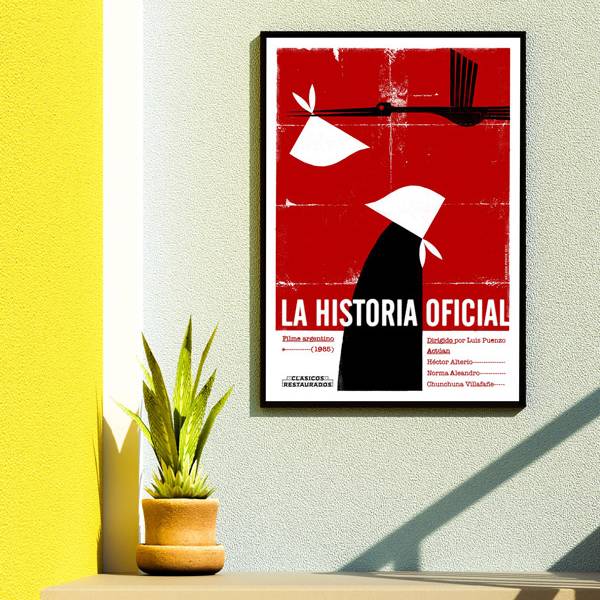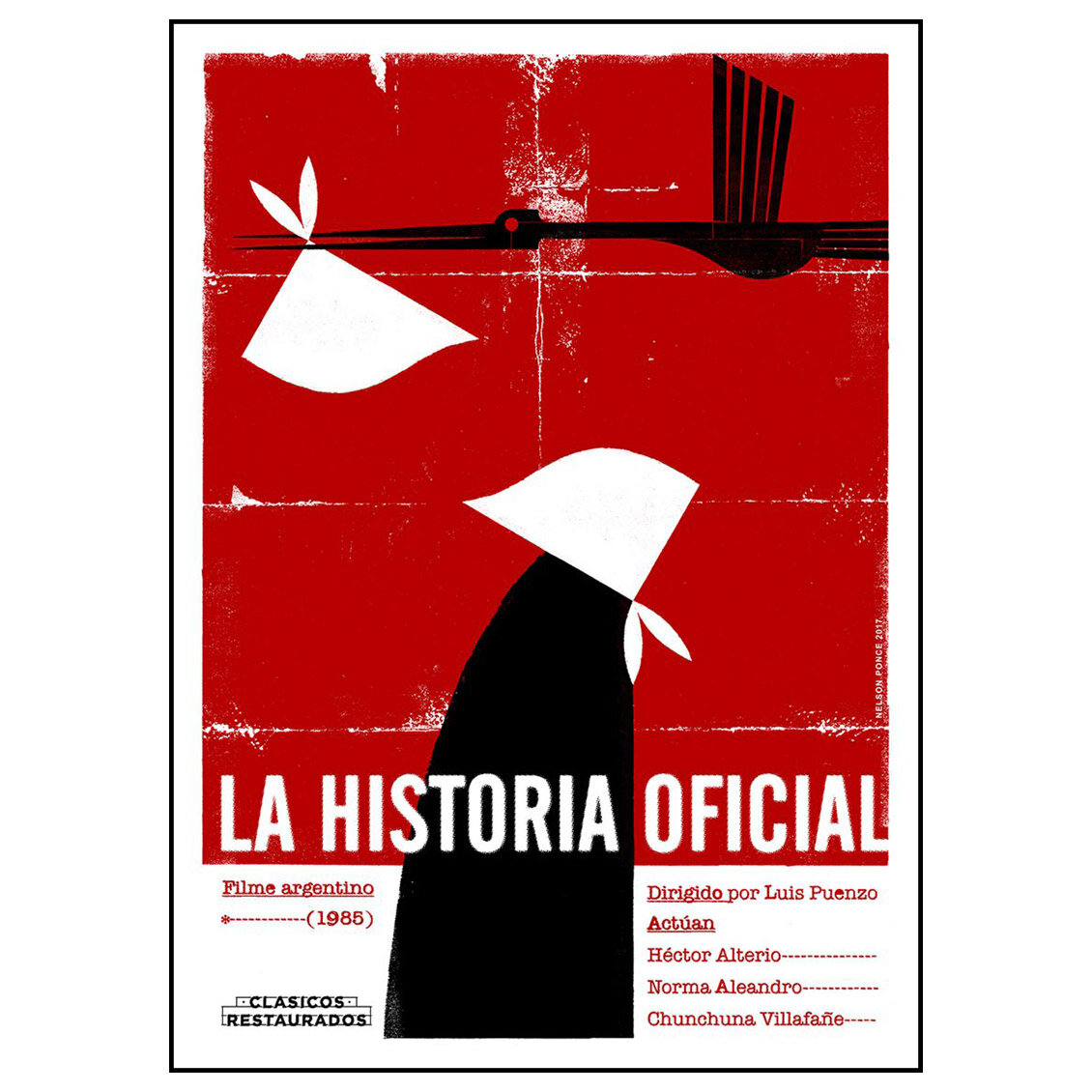The Matador Almodóvar Silkscreen Poster is a rare, collectible print honoring Pedro Almodóvar’s 1986 neo-noir cinema masterpiece. Designed by Cuban artist Nelson Ponce, one of the most innovative voices in contemporary Cuban graphic design.
Hand-pulled in a limited edition of 50 prints, this silkscreen was produced in 2017 using oil-based inks on high quality paper. Each copy is individually signed and numbered.
Unlike mass-produced film prints, this Matador Almodóvar silkscreen poster follows a visual language rooted in artistic interpretation rather than commercial branding. This design approach, characteristic of the post-revolutionary Cuban film poster, privileges metaphor, minimalism, and bold color over literal imagery, offering an evocative tribute to Almodóvar’s complex cinematic vision.
Matador remains one of Almodóvar’s most provocative films, blending eroticism, violence, and melodrama in ways that challenged the conventions of Spanish cinema in the 1980s. Nelson Ponce’s poster channels this tension into a striking visual form that invites repeated viewing.
This poster draws on the acclaimed tradition of Cuban film posters (carteles de cine), recognized by UNESCO’s Memory of the World program for their artistic and cultural significance.
Nelson Ponce (Havana, 1975) is a Cuban designer and illustrator recognized as one of the leading figures in contemporary poster art, editorial design, and illustration on the island. A graduate of the Instituto Superior de Diseño (ISDI) in 1998, he remained at the school for more than a decade as a professor of illustration and poster design, shaping a generation of young Cuban designers. In 2001, he co-founded the experimental collective Camaleón with his students, exploring graphic experimentation through murals, children’s illustration, and cultural magazines such as La Jiribilla.
Ponce’s work has been closely linked to Cuba’s cultural institutions. He has collaborated with the Instituto Cubano de Arte e Industria Cinematográficos (ICAIC), designing film posters and visual identities for events such as the Festival Internacional del Cine Pobre. From 2004 to 2016 he worked with Casa de las Américas, creating promotional materials for international cultural programs and publications. Today, he serves as a coordinator and promoter of graphic design events and exhibitions at the Fábrica de Arte Cubano.
Ponce’s illustrations and posters are known for their inventive compositions, striking chromatic contrasts, and expressive distortions of form. His work has been exhibited internationally in the United States, Italy, France, Spain, Poland, New Zealand, Mexico, and Brazil. His solo shows include 2 (2007), 3 (2018), and Cabeza Loca (2018). He has also participated in collective exhibitions such as Comikazes (2008), ¡Cuba a la Vista! (France, 2015), Puros Cubanos (U.S., 2015), Seattle Havana Tehran (2015–16), and Selfie (2019) at the XIII Bienal de La Habana.
Among his distinctions, Ponce received the Premio Nacional de Diseño del Libro (National Book Design Prize) in 2013. In 2017, his poster La historia oficial was selected as “Poster of the Year” by the Club de Amigos del Cartel (CACa). Influenced by Félix Beltrán, Milton Glaser, David Carson, Javier Mariscal, and Isidro Ferrer, Ponce advocates for a design practice that integrates personal vision and emotion while fulfilling its communicative function.
Check more of Nelson Ponce’s artworks in The Art Shop silkscreen collection.
Matador stands among Pedro Almodóvar’s most daring early works, a film that entwines eroticism, violence, and ritual in a surreal, stylized frame. It follows a former bullfighter and a young lawyer, both consumed by a fatal obsession. Released in 1986, the film stunned Spanish audiences with its psychological depth and taboo themes, marking a pivotal shift in Almodóvar’s emerging cinematic voice.
While divisive at the time, Matador has since become a cult classic, frequently studied for its intense visual language, symbolic use of color, and subversive portrayal of desire. This poster channels the film’s core tension: a hypnotic dance between seduction and surrender.
Haven’t seen it yet? Watch the trailer below and step into Almodóvar’s imaginative universe.


